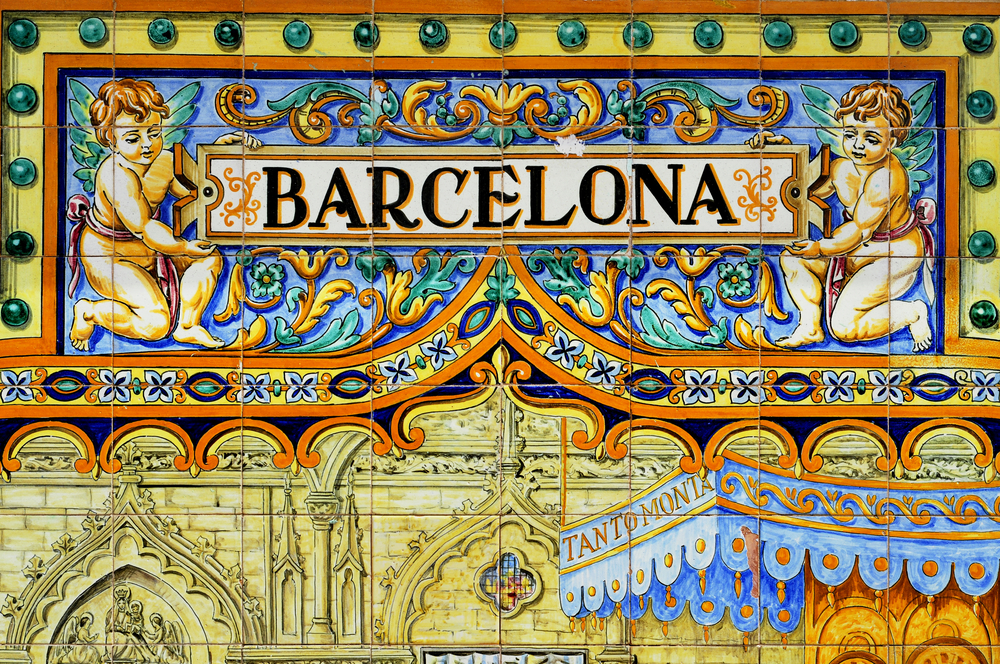
Moving to Barcelona as an American: All You Need to know
Barcelona, the crown jewel of Catalonia, promises a high quality of life and endless opportunities for exploration and enjoyment. Its rich cultural scene is unmatched, with world-class museums, historic neighbourhoods, and a nightlife that pulses with energy.
Are you thinking of moving to Barcelona from the USA? This guide covers everything from visas and housing to adapting to local culture and the cost of living. Get ready to explore this vibrant city and make a smooth transition to your new life in Barcelona.
Key Takeaways
- Barcelona offers a rich cultural scene, beautiful beaches, and a welcoming expat community, making it a top choice for Americans seeking a change of pace.
- US citizens can choose from several visa types, including the Non-Lucrative Visa and the new Digital Nomad Visa, depending on their work and lifestyle plans.
- Compared to major US cities, Barcelona provides affordable housing, reliable public transport, and great dining without breaking the bank.
Why Move to Barcelona?
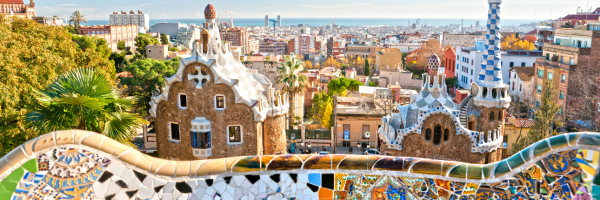
Living in Barcelona means joining a diverse and welcoming expat community. With residents from over 170 nationalities, the city is a true melting pot of cultures. For Americans, this diversity offers a comforting sense of familiarity alongside the chance to learn from new perspectives.
When choosing to move to Barcelona, it’s essential to consider personal preferences, as the best living conditions depend on unique choices, such as a desire for a quieter life versus a more vibrant social scene.
The city’s coastal location is another major draw. With beautiful beaches and a mild climate year-round, it’s ideal for outdoor living and a more relaxed pace of life. Plus, Barcelona is considered one of the safest cities in the world, an important factor for anyone relocating abroad.
Ultimately, Barcelona’s blend of culture, community, and quality of life makes it an ideal destination for Americans considering a move. Whether you’re drawn to its vibrant streets, scenic coastline, or rich cultural heritage, this Spanish city offers something for everyone.
Visa Options for Americans Moving to Barcelona
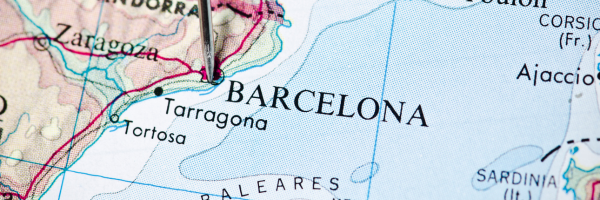
Understanding your visa options is one of the first steps when preparing to move to Barcelona. While the visa process may seem overwhelming, it’s manageable once you know what’s available.
It is crucial to understand the visa requirements to ensure a smooth transition to living in Spain.
For many Americans, the most common visa choices include the Non-Lucrative Visa, Digital Nomad Visa, and Student Visa. The Non-Lucrative Visa is ideal for retirees or individuals with independent means, allowing you to live in Spain without working, provided you can prove financial stability.
If you’re a remote worker or freelancer, the Digital Nomad Visa offers an excellent option. It allows you to live in Spain while working for a company based outside of the country, granting you a residence permit and the flexibility to enjoy Barcelona’s vibrant lifestyle.
Additionally, there are various other visa options available, such as the Spain Golden Visa, which may suit different needs and circumstances.
Lastly, for those planning to study in Barcelona, the Student Visa is the right choice. You’ll need to be enrolled in an educational program with at least 20 hours of study per week, enabling you to both live and engage with the academic culture of the city.
Getting Your NIE (Foreigner Identification Number)
To live, work, or study in Barcelona, you’ll need an NIE (Número de Identificación de Extranjero). This unique number is essential for opening a bank account, signing contracts, and handling taxes.
You can apply for the NIE before or after arriving in Spain. If applying before arrival, you’ll need to visit a Spanish consulate in the US, where you’ll submit your passport, a completed EX-15 form, and proof of your reason for applying (e.g., job offer or study enrolment).
After arriving in Barcelona, you can apply at the Oficina de Extranjeros or a local police station. You’ll need to bring your passport, the EX-15 form, and proof of your address or employment.
Once issued, the NIE is valid indefinitely and essential for all official procedures in Spain.
Preparing For The Move: Costs and Logistics
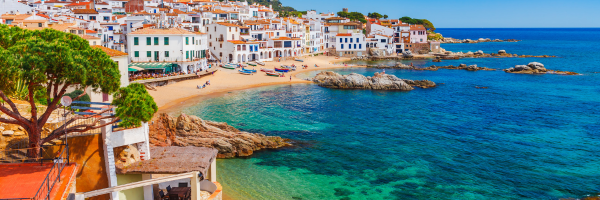
Planning and budgeting is key when preparing to move to Spain. Moving costs can range from a few hundred to several thousand dollars, depending on factors like the volume of your belongings, the moving services you choose, and the method of shipping. If you’re relocating to Barcelona, it’s important to weigh the convenience of door-to-door services against more affordable self-pack options.
One of the most effective ways to reduce your moving costs is to declutter before the move. Minimising what you bring by selling, donating, or storing non-essential items can significantly cut down on shipping expenses and make unpacking in Barcelona much easier.
Additionally, Americans moving to Spain can save money by taking advantage of the country’s lower cost of living compared to the United States.
Shipping Belongings
UPakWeShip offers affordable international moving solutions, including self-pack services and U-Crate shipping, which help streamline the customs process and make the transition as smooth as possible. Their U-Crate options come in three sizes to suit different move sizes:
- U-Crate 50: Perfect for smaller moves, such as a studio or single-room apartment, this crate offers 50 cubic feet of space for personal items and essentials.
- U-Crate 100: A mid-sized option with 100 cubic feet of space, ideal for a larger apartment or a small household move. It accommodates furniture and a broader range of household goods.
- U-Crate 200: Designed for full household relocations, this largest option provides 200 cubic feet of capacity and can handle larger furniture and bulkier items.
Finding Accommodation in Barcelona
Finding the right place to live is crucial when moving to a new city, and Barcelona’s rental market offers a variety of options to suit different preferences and budgets.
When renting a property, be prepared to pay a security deposit equivalent to two months’ rent. Long-term rental contracts typically range from 6 to 12 months. Popular neighbourhoods among expats include Eixample and Gracia, known for their international communities and vibrant atmospheres. If you’re looking for more affordable options, areas like Nou Barris and Sant Martí might be more suitable.
Living slightly outside the city center can provide more space and cost savings, making this an attractive option for many.
It’s also important to consider whether you want a furnished or unfurnished apartment. Furnished apartments tend to generally come with higher rental prices, but they can be a convenient option if you don’t want to deal with the hassle of buying and moving furniture.
Exploring different neighbourhoods and understanding the rental market will help you find the perfect place to live in Barcelona. Remember to factor in the cost of utilities and other monthly expenses to get a clear picture of your budget.
Navigating Health Insurance
Healthcare is a critical aspect of living abroad, and Spain offers a robust healthcare system known as the SNS. This public healthcare system is recognized for its high standards and modern facilities, ensuring quality care for all residents.
Obtaining permanent residency is essential for accessing public healthcare in Spain.
Expats who are legally residing and paying social security in Spain can access public health services. However, many choose to invest in private health insurance to reduce wait times and access more comfortable facilities. Private health insurance can also improve access to multilingual staff, which can be particularly beneficial for those who are not fluent in Spanish.
One of the advantages of private health insurance in Spain is that it’s significantly cheaper compared to the US. While dental care is not covered under the public healthcare system, except for children under 15, private insurance can provide comprehensive coverage, including dental services.
Setting up Finances in Barcelona
Once you arrive in Barcelona, opening a local bank account will make it much easier to manage everyday expenses such as rent, utilities, and groceries. Most major Spanish banks, including CaixaBank, BBVA, and Santander, offer both non-resident and resident accounts, with online banking services available in English.
To open an account, you’ll generally need a valid passport, your NIE (Número de Identificación de Extranjero), proof of address (whether temporary or permanent), and proof of employment or student status, depending on the account type.
If you’re working remotely or freelancing, consider looking into digital banks like N26 or Revolut. These banks offer multi-currency accounts with low fees and allow for a quick setup without requiring a local address.
By combining a local Spanish bank account with an international digital account, you can enjoy greater flexibility and avoid high foreign transaction fees.
Job Opportunities and Careers
Barcelona is a hub for job opportunities, with a strong focus on innovation, technology, and entrepreneurship. The city is home to many start-ups and established companies, offering a wide range of career opportunities for professionals.
Whether you’re in digital marketing, software development, finance, or healthcare, there are numerous industries to explore. Additionally, Barcelona is a popular destination for remote workers and digital nomads, thanks to its many coworking spaces and cafes that provide a productive and inspiring environment.
With the digital nomad visa, it’s easier than ever for foreigners to live and work in Barcelona, making it an ideal city for those looking to balance work and leisure.
Adjusting to Life in Barcelona
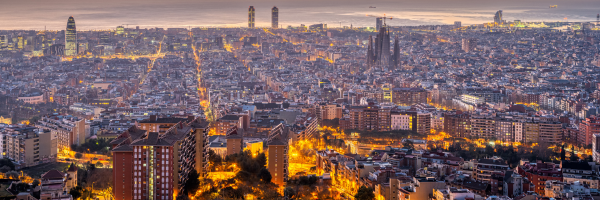
Living in Barcelona offers a unique blend of culture, convenience, and affordability, but adjusting to a new city comes with its own set of challenges.
Navigating Cultural Differences
Embracing Spanish culture is key to making the most of your time in Barcelona. The city’s delicious cuisine is a delightful blend of healthy Mediterranean elements, featuring fresh local ingredients and diverse culinary options. Dining in Barcelona often includes tapas, small plates meant for sharing, encouraging communal eating and lively conversation.
Understanding social customs is also important. Spaniards value family gatherings, and mealtimes are significant social events. Lunchtime typically occurs between 2pm and 3pm, with dinner starting much later, around 9pm to 10pm. Greetings usually involve two kisses on the cheek, reflecting the friendly nature of social interactions in Spain.
Direct and animated communication is common, often accompanied by expressive gestures and interruptions due to excitement. Spaniards also have a relaxed attitude towards punctuality, giving a little leeway for being late.
Participating in local community events and expat meetups can help you build relationships and integrate into the vibrant culture of Barcelona, while also understanding cultural differences. Many locals participate in these community events, which helps newcomers integrate into the culture. Festivities like Semana Santa and La Tomatina showcase Spain’s rich cultural heritage and community spirit.
Attempting to learn and speak Spanish can impress Spanish people and quickly warm them to you, making it easier to form connections and feel at home.
Learning Spanish and Catalan
As both Spanish and Catalan are official languages in Barcelona, learning these languages is essential for full integration. The city offers a range of resources for language learners, from formal courses to informal conversation programs like Voluntariat per la Llengua. Self-study tools, such as language apps like Mondly or Duolingo, and public libraries also make learning easier. Speaking Spanish and Catalan will help you navigate daily tasks and connect with the local culture.
Transportation
Barcelona has an efficient public transport system, including buses, trams, and metro lines.
The T-Casual card allows for 10 trips across various zones for €11.35. The CityBike system offers over 6,000 bikes at 420 stations, while electric scooters are available for quick trips. Taxis are affordable, and car-sharing services like Uber provide additional flexibility. While public transport is highly efficient, driving in the city can be challenging due to heavy traffic and expensive parking.
Education and Personal Development
Barcelona offers a wide range of educational opportunities, from language schools to prestigious universities. For those interested in learning Spanish, there are many language schools and courses available, catering to all levels and ages.
The city is also home to several international universities, offering programs in English and other languages, making it accessible for non-Spanish speakers.
For personal development, Barcelona has a thriving community of like-minded individuals, with many opportunities for networking, language exchanges, and cultural events.
Whether you’re looking to improve your language skills, learn a new hobby, or pursue a new career, Barcelona has the resources and support to help you achieve your goals.
Socializing and Exploring Beyond Barcelona
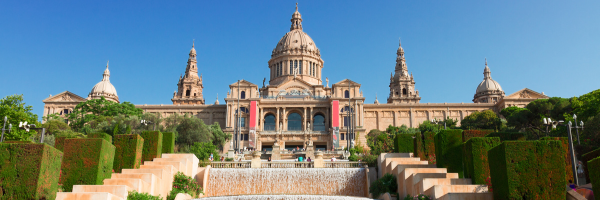
One of the perks of living in Barcelona is its central location in Western Europe, making it an ideal hub for discovering other European cities and European countries, as well as other EU countries, and being recognized as an international city. With direct flights, high-speed trains, and convenient connections, no destination is too far away.
The Canary Islands are a popular travel destination for expats living in Spain, offering beautiful landscapes and attractions that contribute to Spain’s diverse culture and lifestyle.
For a quick escape, you can take a one-hour flight to Mallorca for beautiful beaches or a 45-minute train ride to Girona to explore its historic sites. Seville is accessible via high-speed train in about 5.5 hours or a two-hour flight, offering a rich cultural experience. Ibiza, known for its vibrant nightlife, can be reached by a one-hour flight from Barcelona.
Closer to home, Sitges is just a 30-40 minute train ride away, perfect for a beach day escape. Valencia, with its unique blend of old and new, is a convenient getaway via a three-hour high-speed train. For those interested in history, Tarragona, featuring well-preserved Roman ruins, is about an hour away by train.
Cities like Rome, Paris, and London are also quick flights from Barcelona, enhancing your travel opportunities to major cities and other cities.
Social Life and Making Friends
Barcelona has a vibrant nightlife that offers endless opportunities to socialize and make new friends. Many people typically arrive at clubs around 1-2 am, so if you’re a night owl, you’ll fit right in. The relaxed lifestyle in Barcelona means that socializing often happens spontaneously, whether it’s a late-night party or a casual gathering at a trendy bar.
Connecting with other expats can enrich your relocation experience, as they can offer valuable insights into the neighborhoods popular among expats and help you build a supportive community.
One of the best places to meet people is Barceloneta Beach, where you can engage in activities like volleyball, spikeball, picnics, and skating. These activities are great for making friends while enjoying the beautiful beach setting. It’s essential to stay aware of your personal belongings, as phone theft can be a concern when going out in Barcelona.
Joining language exchanges and expat groups can also help you build a social network. Barcelona has a large international community, making it easy to find people with similar interests and backgrounds. Whether you’re into sports, arts, or just looking to explore your new neighborhood, you’ll find plenty of opportunities to connect with like-minded individuals in Facebook groups.
Community and Networking
Barcelona boasts a large and diverse expat community, providing numerous opportunities for networking and socializing. From Facebook groups and language exchange events to coworking spaces and social clubs, there are many ways to meet new people and make friends. The city also hosts numerous cultural events and festivals throughout the year, offering a great way to experience the local culture and meet like-minded individuals. For digital nomads and remote workers, there are many communities and groups dedicated to supporting and connecting professionals who work remotely. Whether you’re looking to expand your professional network or simply make new friends, Barcelona’s vibrant expat community has something for everyone.
Summary
Moving to Barcelona offers an exciting adventure filled with opportunities for personal growth and cultural enrichment. From understanding visa options and finding the perfect accommodation to navigating health insurance and embracing the local culture, this guide has provided you with the essential information to make your transition as smooth as possible.
Barcelona’s vibrant culture, diverse expat community, and high quality of life make it an ideal destination for Americans looking to move abroad. Whether you’re drawn to its stunning beaches, rich history, or lively nightlife, Barcelona has something for everyone. The city’s central location in Western Europe also makes it a fantastic hub for exploring other European cities.
As you embark on this new chapter, remember to embrace the local culture, learn the languages, and take advantage of the numerous opportunities to socialize and make friends. Barcelona is not just a place to live; it’s a place to thrive. Welcome to your new home!


No Comments